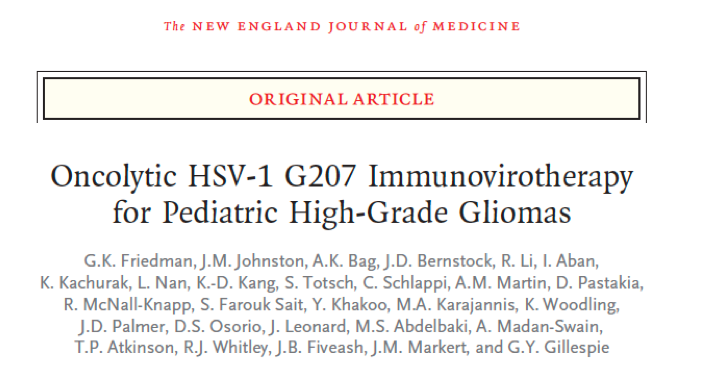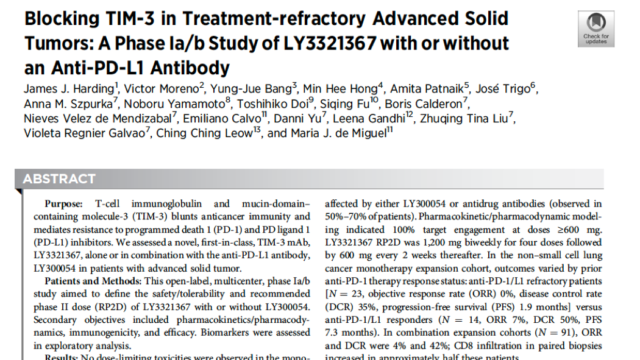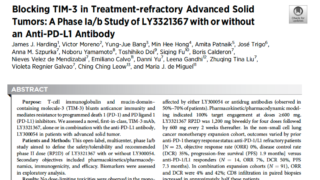N Engl J Med 2021; 384:1613-1622 https://www.nejm.org/doi/full/10.1056/NEJMoa2024947
Significance of finding: extremely high
This clinical Phase 1 trial with G207 which is genetically engineered herpes simplex virus type 1 (HSV-1) achieved the primary endpoint that no DLT was observed and MTD was determined. Other specific adverse events were not reported, and it is a comparatively safe treatment although a surgical procedure to insert a catheter was needed. Efficacy analysis also showed promising results that clinical benefit was observed in 11 out of 12 patients and median overall survival was 12.2 months (previous reports showed only 5.6 months among patients with the same disease [J Neurooncol 2018; 137: 103-10.]). This report is truly important for further investigation of antiviral therapy and a primary brain tumor in children.
Oncolytic viral therapy has been developed in recent years, however, the efficacy and safety are not yet established. For malignant cutaneous tumors, HF-10, one oncolytic viral therapy, was developed in the runup to this drug (NCT02428036). Unfortunately, the anti-tumor activity and safety profile of this mechanism is not established yet even though several clinical trials, including combination regimens, have been conducted (NCT03252808 etc).
Primary brain tumors including glioma were regarded as “cold” tumors from the aspect of immunotherapy over a long period. The recent development of immunotherapy suggested a combination of radiotherapy and immunotherapy. According to the study of NSCLC, this combination therapy indicated the efficiency, however, the efficacy was not determined in primary brain tumors.
| NCT number | Agents | Phase | Tumor types | Trial Status | location |
|---|---|---|---|---|---|
| NCT03833154 | Durvalumab and SBRT | 3 | NSCLC | recruiting | US etc |
| NCT02608385 | Pembrolizumab and SBRT | 1 | NSCLC | active not recruiting | US |
| NCT02599454 | Atezolizumab and SBRT | 1 | NSCLC | active not recruiting | US |
| NCT02968940 | Avelumab and RT | 2 | Glioblastoma with IDHmutation | completed | US |
In this Gene-specific treatment era, precision medicine for brain tumors is expected to be developed. All of the patients enrolled in this trial were IDH wild-type and recommended therapy for this group is still unknown. However, considering these difficulties of the treatment for pediatric gliomas, the result of this trial offers a strong ray of hope. We expect further development in this field.


